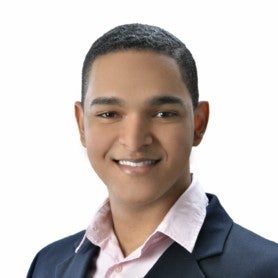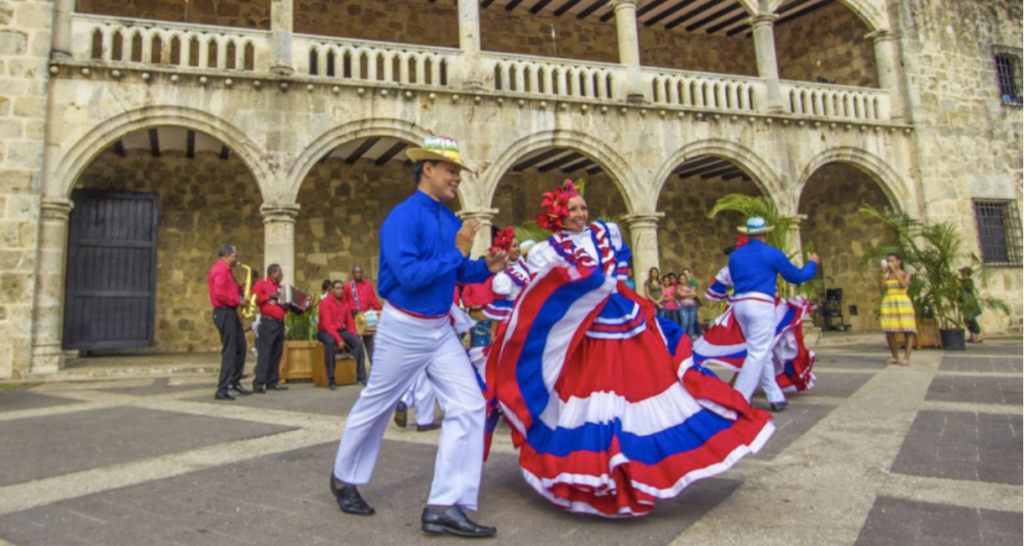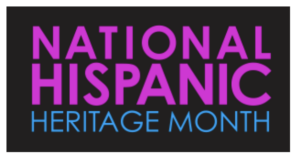Written by Fernando Rijo Cedeno, Senior Software Engineer at Broadcom, Open Mainframe Project Ambassador and contributor to Zowe
 Hi, I’m Fernando. I grew up in theDominican Republic, where Spanish is spoken and Christianity is the main religion. We have our own unique traditions like carnivals and significant independence celebrations, which are common in manyLatin American countries. I faced some of the same challenges that many Hispanics and Latinos encounter – figuring out how to move to a country with better opportunities than our own. I consider myself fortunate because my grandparents became US citizens through naturalization shortly after I was born. Through some sacrifices, my parents were able to help both my sister and me become US residents through a petition process.
Hi, I’m Fernando. I grew up in theDominican Republic, where Spanish is spoken and Christianity is the main religion. We have our own unique traditions like carnivals and significant independence celebrations, which are common in manyLatin American countries. I faced some of the same challenges that many Hispanics and Latinos encounter – figuring out how to move to a country with better opportunities than our own. I consider myself fortunate because my grandparents became US citizens through naturalization shortly after I was born. Through some sacrifices, my parents were able to help both my sister and me become US residents through a petition process.

Source: https://everythingpuntacana.com/dominican-republic-carnival/
When I became a US resident, I was still in high school in the DR. My parents were hesitant
about me moving to the US with my grandparents, perhaps because they had heard stories
about immigrant kids facing negative influences in society. Fortunately, luck was on our side. My
parents discovered a 2+2 program (two years at home and two years abroad) offered by the
Instituto Technológico de Santo Domingo (Intec) and Pennsylvania State University
(Penn-State). This allowed me to complete my studies in the US.
Both of my parents worked at Codetel (which is now known as Claro), a well-known
telecommunications company in the Dominican Republic. I still recall a special “Bring your kids
to work” day when I got to see them in their element. Stepping into the server rooms left a
lasting impression on me. All around, there were rows of racks with lights blinking in red and
green, and the sound of whirring fans filled the air. It was at that moment that my love for
computers began to grow.
 In the beginning, I didn’t have a clear idea about becoming a software developer. It wasn’t until I started college that I discovered how you can tell a computer what to do. I want to clarify, though, that I was familiar with using a PC for as long as I can remember. Still, I didn’t understand how someone could create something as seemingly “complicated” as a Snake game.
In the beginning, I didn’t have a clear idea about becoming a software developer. It wasn’t until I started college that I discovered how you can tell a computer what to do. I want to clarify, though, that I was familiar with using a PC for as long as I can remember. Still, I didn’t understand how someone could create something as seemingly “complicated” as a Snake game.
My first exposure to programming was in my sophomore year of college, right before moving to the US, and it became something that drove my way of thinking about the world. I got so into programming that I started building console games like Snake, Minesweeper, and Tic Tac Toe for fun in my spare time at college. I was lucky enough to attend a few programming contests in the Caribbean where I got to compete against some of the best at the time in nearby countries like Cuba. However, given that I was about to move to the US, I could not participate in the Dominican team that made it to the ACM-ICPC 2012 World Finals hosted in Warsaw, Poland.
As I entered college, I was excited to explore programming further. This phase marked a crucial
juncture in my path. Upon enrolling at Penn-State, I faced fresh hurdles, needing to swiftly
adjust to conquer challenges such as language differences and adapting to a new culture.
These encounters played a significant role in shaping my present self and have left an impact
on how I tackle software development. For example, whenever I create software, I always
consider making it accessible to non-English speakers through localization (also known as
internationalization). This way, I aim to ensure that everyone can benefit from what I create.
I understand that many Latin American countries may share some similarities in aspiring for the
“American Dream” of coming to the US and leading a stress-free life. However, this can be a
misconception rooted in our limited perspective, as we may not fully comprehend the challenges
and efforts involved. While there are indeed abundant opportunities, the pursuit of a better life in
a new country demands substantial dedication and hard work. It may seem unconventional, but
my primary objective is to attain early retirement. This desire is driven by my observations of
individuals in numerous Latin American countries who often find themselves working tirelessly
throughout their entire lives.
 During this Hispanic Heritage Month, I’m proud to stand as a representative for Hispanics and
During this Hispanic Heritage Month, I’m proud to stand as a representative for Hispanics and
Latinos in the tech and open source community. Stay strong, my fellow Latinos. The field of IT has
endless chances for progress and achievement. Keep moving ahead, understanding that your background and determination are your strongest advantages. The journey might be tough, but the rewards make it all worthwhile. ¡Vamos adelante!